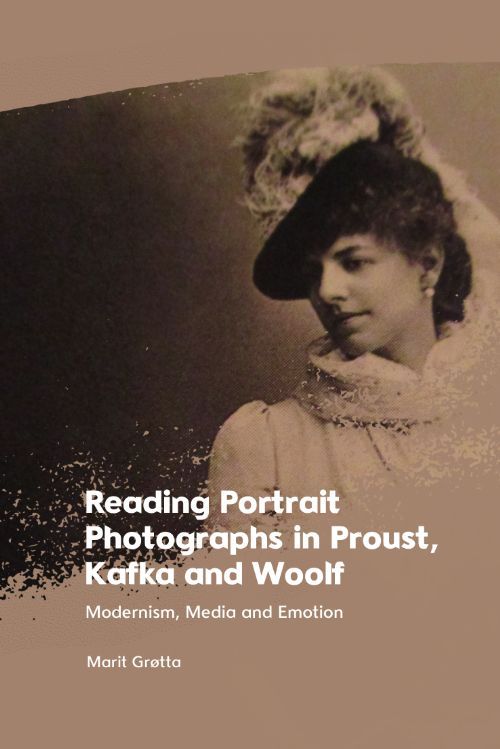
Marit Grøtta, Reading Portrait Photographs in Proust, Kafka and Woolf: Modernism, Media and Emotion
Portrait photography increased in popularity during the modernist period and offered new ways of seeing and understanding the human face. This book examines how portrait photographs appear as literary motifs in the works of Marcel Proust, Franz Kafka and Virginia Woolf, and discusses how such pictures prompt feelings of love and gratification as well as feelings of frustration and distress in the beholders. The book reconsiders the modernists’ relation to the visual media and the possibilities for contact, communication, and sympathy early in the twentieth century. More broadly, it considers how the increased circulation of portrait photographs transformed human relations and the relation between the private and the public spheres
Combining perspectives from literary, visual and media studies, Marit Grøtta discusses these writers’ ambivalent views on portrait photographs and the uncertain status of technical images in the early twentieth century more generally. In reconsidering the attention paid to analogue photographs in literature, this book throws light on both modernist reactions to portrait photography and on our relationships to photographs today.
—
Contents
Introduction: Reading Faces in the Age of Portrait Photography
1. Truth in Photographs: Marcel Proust
2. Power in Photographs: Franz Kafka
3. Sympathy in Photographs: Virginia Woolf
4. Conclusions: Living with Mediated Faces
Bibliography
Index
—
Marit Grøtta is Professor of Comparative Literature at the University of Oslo, Norway. She is the author of Baudelaire's Media Aesthetics: The Gaze of the Flâneur and Nineteenth-Century Media (Bloomsbury Academic, 2015). Her research interests are nineteenth-century and modernist literature, visual culture, media philosophy and aesthetic theory.